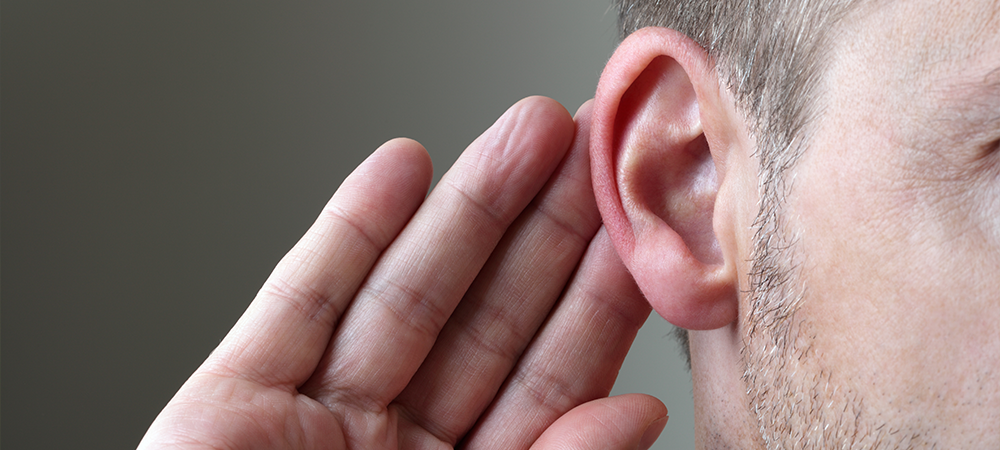Whether you hear it occasionally or it’s with you all of the time, the ringing of tinnitus can be annoying. There might be a more suitable word than annoying. How about frustrating or makes-you-want-to-bash-your-head-against-the-desk irritating? That noise that you can’t turn off is an issue however you decide to describe it. So what can be done? Can that ringing really be prevented?
Why do You Have Tinnitus And What Exactly is it?
Begin by finding out more about the condition that is responsible for the ringing, clicking, buzzing, or roaring you hear. It’s estimated as much as 10 percent of the U.S. population suffers from tinnitus, which is the medical term for that ringing. But why?
Tinnitus itself is not a condition but a sign of something else. That something else is hearing loss for many. Tinnitus is a result of hearing decline. It’s not really evident why tinnitus occurs when there is a change in a person’s hearing. That the brain is generating the noise to fill the void is the present theory.
Each and every day you encounter thousands, maybe even hundreds of thousands of sounds. There are the obvious sounds like a motor running or someone yelling, and then there are sounds you don’t even notice. The sound of air coming through a vent or the rotating blades of a ceiling fan are not as noticeable. These sorts of sound are not typically heard because the brain decides you don’t need to hear them.
The main point is, hearing these sounds is “normal” for your brain. If half of those sounds are turned off, what happens then? The portion of your brain responsible for hearing gets confounded. It might be possible that the phantom sounds that come with tinnitus are its way of creating noise for it to interpret because it knows it should be there.
Hearing loss isn’t the only possible cause of tinnitus, however. It can be connected to severe health problems like:
- Acoustic neuroma, a tumor that grows on the cranial nerve
- Atherosclerosis
- A reaction to medication
- Temporomandibular disorders (TMJ)
- Poor circulation
- Head or neck trauma
- Meniere’s disease
- Head or neck tumors
- High blood pressure
- Turbulent blood flow
Tinnitus can be caused by any of these things. After an injury or accident, even though you can hear fine, you could experience this ringing. Before looking for other methods of dealing with it, you should schedule an appointment with a doctor for a hearing exam.
Can Anything be Done About Tinnitus?
You need to know why you have it before you can start to determine what to do about it. The only thing that works, in many cases, is to give the brain what it wants. If the lack of sound is causing your tinnitus, you need to create some. Something as simple as a fan running in the background could produce enough noise to shut off the ringing, it doesn’t need to be much.
Technology such as a white noise generator is made just for this purpose. Ocean waves or rain falling are relaxing natural sounds which these devices simulate. You can hear the sound as you sleep if you buy one with pillow speakers.
Hearing aids also do the trick. You can turn up the sounds that your brain is looking for, like the AC running, with quality hearing aids. Hearing aids normalize your hearing enough that the brain has no further need to create phantom noise.
For most people, the solution is a combination of tricks. Using a white noise generator at night and wearing hearing aids during the day are examples of this approach.
There are also medications available if soft sounds are not working or if the tinnitus is more severe. Medications such as Xanax and possibly other antidepressants can quite this noise.
Lifestyle Changes to Handle Your Tinnitus
Modifying your lifestyle a little bit can help as well. Figuring out if there are triggers is a good place to start. When the tinnitus starts, note what’s going on and write it down in a log. Be specific:
- Is there a particular noise that is triggering it?
- Did you just take medication even over-the-counter products like Tylenol?
- Did you just drink a soda or a cup of coffee?
- Are you smoking or drinking alcohol?
- What did you just eat?
The more accurate your information, the faster you’ll notice the patterns that might be inducing the ringing. Meditation, exercise, and biofeedback can help you avoid stress which can also be responsible.
An Ounce of Prevention
The best way to get rid of tinnitus is to prevent it in the first place. Start by doing everything possible to protect your hearing like:
- Wearing ear protection when around loud noises
- Taking care of your cardiovascular system
- Turning the volume down on everything
- Not wearing earbuds or headphones when listening to music
If you have high blood pressure, take your medication. Eat right and exercise as well. To eliminate treatable problems that increase your risk of hearing loss and tinnitus, schedule a hearing exam with a hearing professional.
If you suffer from tinnitus and are ready to do something about it, give Tim Harmon a call today at Purchase Ear Technology at (270) 558-3996. Purchase Ear Technology is conveniently located at 2008 Broadway St in Paducah, KY. At Purchase Ear Technology, you are more than a patient. YOU ARE FAMILY!









